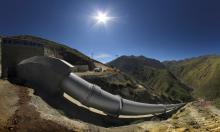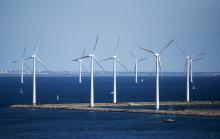Hydropower
Policies, Laws and Regulations: Hydropower
Reference: IEA/IRENA Global Renewable Energy Policies and Measures Database - The International Renewable Energy Agency (IRENA) maintains a joint database with the International Energy Agency (IEA) for policies and measures pertaining to renewable energy from around the world. The database is searchable by country and sector.




